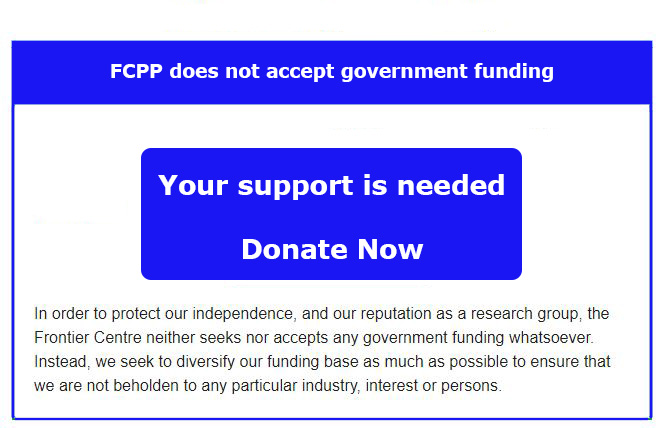In early April, the federal government of Canada announced that it would support Air Canada through the rest of the pandemic lockdown-induced drastic decline in air travel with a combination of loans, and, in a return to its previous status as a stratospheric ward of the state, $500 million in equity capital.
While it is understandable that the government would want some chance of an upward revaluation of its ‘investment’ once the pandemic panic ends and semi-normal air travel resumes, it is an open question whether the government should expose itself to business risk and also revert to being a holder of shares in commercial enterprises.
This action may also indicate that Ottawa will do something similar with Air Canada’s competitors, including Westjet, Porter, Flair and Chorus–which operates feeder routes for Air Canada. That presumably means yet more millions of dollars committed to an industry that is volatile and erratic in profitability and financial viability at the best of times–which these are emphatically not.
The lockdowns and travel bans are a government-caused calamity for the industry, which should, morally, be addressed by the government that initiated them. There are other means to do so, however, including paying for laid-off employees, paying the interest on loans for airplanes, and paying the landing and other fees that airports demand whether or not flights are arriving, leaving, or empty. The government could also offer advance tax losses or refunds on corporate losses.
Another alternative could be to let Air Canada declare bankruptcy. Creditors could then decide whether to liquidate the company or recapitalize it, along with some restructuring and cost-slashing. Since Ottawa needs to treat the rest of the domestic airline industry fairly vis-à-vis Air Canada, there will likely be more millions, perhaps billions, of dollars flung into the ether in the hopes that domestic air travel as it used to be experienced in 2019, can revive intact.
Such a revival may be a desperate dream. Corporate travel, conferences, and convention travel may not recover to its previous level, as managers realize that internet teleconferencing can usually suffice, and is much cheaper and, theoretically, less time-consuming. Leisure travel may not recover quickly, as pandemic restriction and wariness of travellers to lingering disease threats put a damper on demand. A strong return of international travel is unlikely in the near term as well. So, Ottawa could be stuck with this dubious and speculative investment and others that are forthcoming, for quite some time.
While the circumstances of the TransMountain Pipeline are different, the essence is the same. The government created a problem, causing financial uncertainty and investor concern, and then papers over it with hundreds of millions of dollars; in the case of TransMountain, several billion. The government had a dysfunctional and distrusted environmental and ‘social license’ review process, lasting for years, with no successful conclusion in sight, which caused the project owner, Kinder Morgan, to bail out on it.
Analogously, governments have made building new infrastructure and other major capital projects so difficult and expensive, that Ottawa created the Infrastructure Bank to ‘invest’ in things that the private sector or investment management funds found unattractive without a government guarantee. This ‘bank’, too, has been problematic, with only four billion dollars in investments made since it was created in 2017.
Governments need to be more rational and perceptive when they develop policies and processes. Such things can hurt industries and sectors in the economy and society that can then be costly to clean up. Making new mini- or macro-Crown corporations or investment portfolios out of industries stricken by ill-informed government edicts is not the best or safest strategy to deal with such policy errors in judgment.
Ian Madsen is a senior policy analyst with the Frontier Centre for Public Policy.



